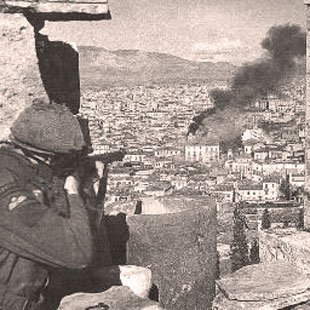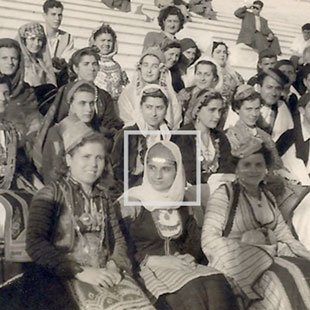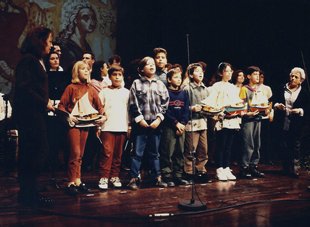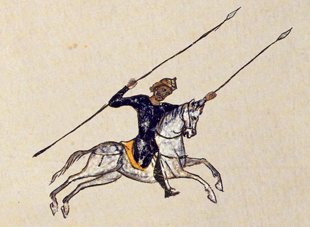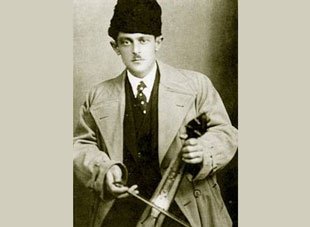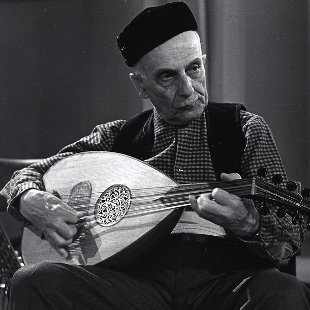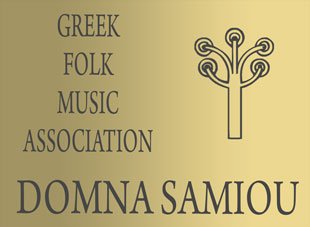You are at: Home page Her Work List of Songs A Little Shorty (Skiathos)
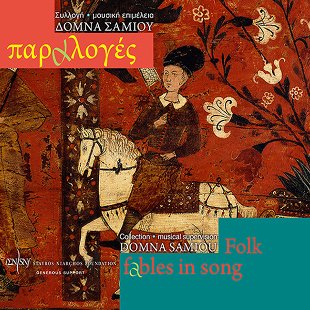
A Little Shorty (Skiathos)

Ένας κοντός κοντούτσικος (Σκιάθος)
Listen
Lyrics
A short little man had a beautiful wife.
The whole neighbourhood was jealous, and all the land
and a pasha, a pasha envied him, too.
He taxed him hard, imposed a load too heavy to bear.
He sold vineyards heavy with grapes
and fields swaying with wheat.
He sold three-storey houses with marble courtyards,
and when that was not enough, he would sell his wife, too.
So the shorty took his pride and joy, his wife,
and on the way to market met a merchant.
– My good, short man, where to with the beauty?
– To market, for I would sell her.
– How much are you asking, shorty, what’s your price?
– One lip’s worth a thousand, which makes two for the pair,
and who could put a price on a body so tall and slender?
– Take off your fez and open out your apron.
Put the gold in your hat, and the silver in your apron,
and if it’s not enough, I’ll give you as much again.
[The young man takes the maid, the short man the money.
– If you don’t mind, maid, may I ask you
from where your mother hails, from where your parents came?
– My mother is from Venice, my father from Constantinople,
and I have a brother whose been missing nigh on twenty years.
And brother kissed sister on the eyes and on her brow.
– Hey, shorty, take your beauty, take your wife.
Use the gold coins to celebrate, keep the silver ones for you.]
Translated by Michael Eleftheriou
Original Lyrics
Ένας κοντός κοντούτσικος (Σκιάθος)
Ένας, ένας κοντός κοντούτσικος έχει όμορφη γυναίκα,
τονε, καλέ, τονε ζηλε- τονε ζηλεύει η γειτονιά,
τονε, τονε ζηλεύει η γειτονιά, τονε ζηλεύει η χώρα,
τον ζή- καλέ, τον ζήλεψε, τον ζήλεψε κι ένας πασάς
τον ζήλεψε κι ένας πασάς πο’ ’χει όμορφη γυναίκα.
Βαρύ χρέος του έριξε, βαρύτερο χαράτσι.
Πούλησ’ αμπέλια ατρύγητα, χωράφια με τα στάχυα,
πούλησε σπίτια τρίπατα μ’ αυλές μαρμαρωμένες
και δεν του φτάσανε κι αυτά, πουλά και την καλή του.
Παίρνει ο κοντός την έμορφη, παίρνει και την καλή του,
στο δρόμο ν-όπου πήγαιναν, πραματευτή απαντέχουν.
– Πού πας κοντέ την έμορφη; – Πάω να την πουλήσω.
– Κοντέ, πόσα τηνε πουλάς, πόσα την παζαρεύεις;
– Το ’να της χείλι χίλι’ αξίζ’ τα δυο της δυο χιλιάδες
και το ψιλόλιγνο κορμί λογαριασμό δεν έχει.
– Βγάλε κοντέ το φέσι σου, στρώσε και την ποδιά σου,
στο φέσι βάλε τα φλουριά και στην ποδιά τα γρόσια
κι αν δε σου φτάσουνε κι αυτά σου δίνω κι άλλα τόσα.
[Παίρνει ο νιος την έμορφη και ο κοντός τα γρόσια.
– Κάνω κόρη μ’ για να σου ειπώ, κάνω να σε ρωτήσω,
κόρη μ’ ’πό πού είν’ η μάνα σου, ’πό πού είν’ τα γονικά σου;
– Απ’ τη Βενετιά είν’ η μάνα μου κι ο κύρης μ’ απ’ την Πόλη,
έχω και έναν αδελφό που λείπ’ είκοσι χρόνια.
Φιλάει αδελφός την αδελφή στα μάτια και στα φρύδια.
– Κοντέ μ’ πάρε την έμορφη, πάρε και την καλή σου
και τα φλουριά κεράσματα, τα γρόσια μετρητά σου.]
Information
- Region: Sporades
- Area: Skiathos
- Categories: Fable Song (Ballad)
- Rhythm: 2 beats
- Dance style: Local dance
- Short Description: A brother and a sister recognize each other
- Duration: 05:26
Collaborators
- Singer: Domna Samiou
- Choir: Domna Samiou Greek Folk Music Association Choir
- Violin: Nikos Oikonomidis
- Constantinopolitan lute: Socrates Sinopoulos
- Lute: Kostas Papaprokopiou
- Goblet drum: Vangelis Karipis
- Informant (source of the song): Yannis Parisis
Albums
Notes
A fine example of a song packed with information about the social conditions of its time which sheds light on relationships within the family, and especially on the place of the wife, the buying and selling of whom provides its plot. The song’s core theme is a motif much beloved in the folk literature of every nation: one member of a family recognizing another in extreme circumstances (see A trader made his way, A maid bidding farewell, Dawn glowed in the East, Three lords a-sitting, A little shorty (Meli, Erythrae, Asia Minor)). In Greek fables, a Christian maid whom her husband either sells to settle a crippling debt or is captured by corsairs, is recognized at the eleventh hour -usually following divine intervention by her brother, who has been converted to Islam- before the two unknowingly commit the sin of incest.
That the brother is referred to as a janissary has prompted S. Baud-Bovy to date its creation to the 15th century, the era when the Janissary Corps was instituted. S. Kyriakidis, however, argues that the motif of the siblings who recognize one another and are saved from an incestuous union as a result predates the period of Turkish rule, and even features in the Talmud (which had been translated into Greek for use in synagogues for the benefit of Greek-speaking Jews). Miranda Terzopoulou (2008)
Local dance, danced during the Carnival period called “apokriatikos”.
Recording information
Studio recording, 2006.
Domna Samiou taped the song in Skiathos, sung by Yannis and Syraino Parisis and Mary Batli, in 1974.
Member Comments
Post a comment
See also
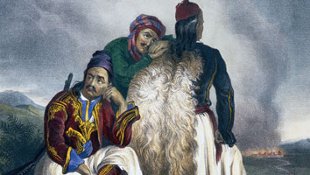
Song
All the Castles I Have Seen
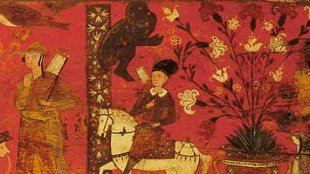
Song
Arta’s Bridge
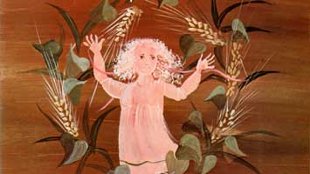
Song
Arta’s Βridge


Song
A Trader Made His Way

Song
Dawn Glowed in the East
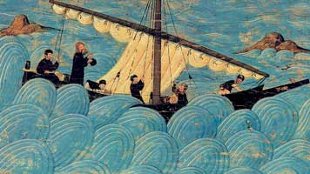
Song
Down on the Sandy Beach

Song
Evyenoula
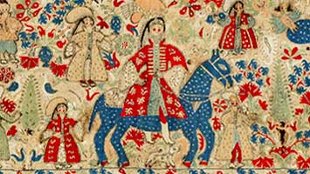
Song
Fair Evgenoula
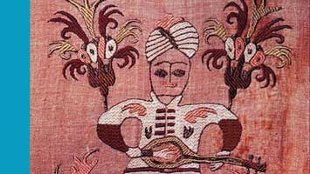
Song
Four and Four
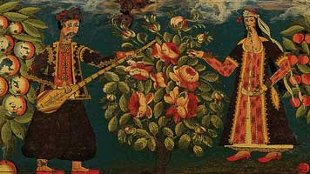
Song
O Black Dawn, Won't You Break

Song
On Saint George's Eve

Song
Somewhere in the Aegean Sea
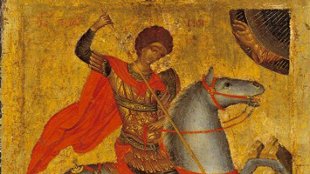
Song
Song of Saint George

